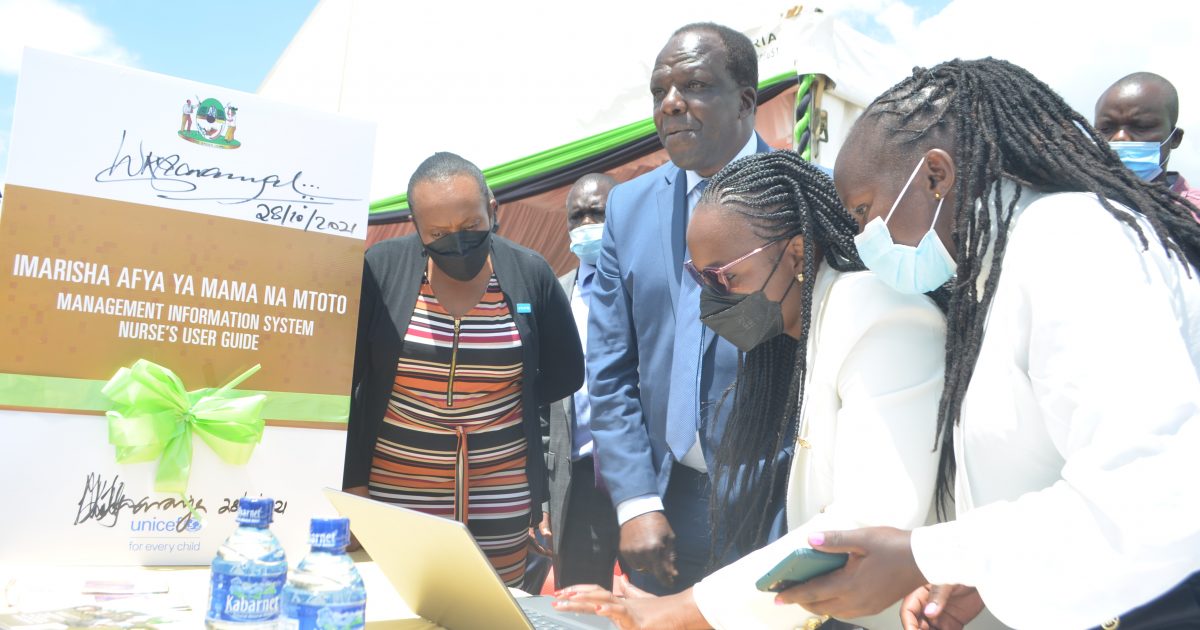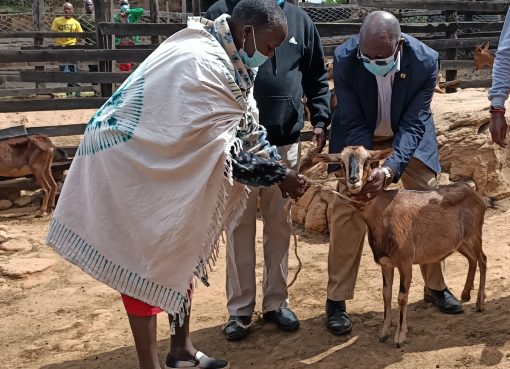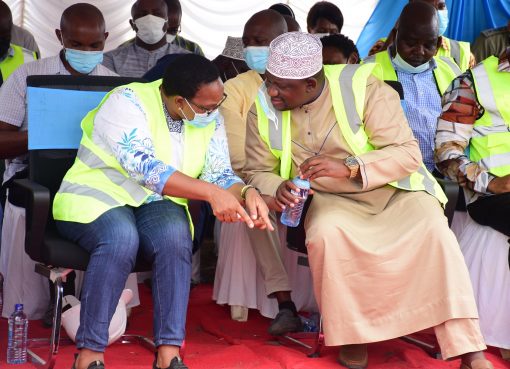The United Nations International Children’s Fund (UNICEF) has acknowledged the contribution of Cash Transfer programmes to behavior change among community members in the country.
UNICEF Kisumu Zonal Office Chief Wangari Kamau noted the positive impact that Kakamega County Cash Transfer programme dubbed Imarisha Afya ya Mama na Mtoto has had on attendance at maternal clinics by vulnerable women since the programme inception in 2014.
The programme has benefited over 65, 000 women with the county government injecting Sh100 million to support its scale up every financial year.
Speaking in Kakamega town, Kamau said that according to a research conducted by UNICEF and Nairobi University’s Institute for Development Studies (IDS), the cash transfer programmes will have a more powerful effect if they will be combined with other social interventions than when implemented alone.
As a result, UNICEF partnered with the County government of Kakamega to relaunch the Imarisha Afya ya Mama na Mtoto which is also known as Oparanya Care to include linkages where beneficiaries will be linked to other social protection services such as the Inua Jamii Cash Transfer Programme, the National Birth Registration agenda and the National Hospital Insurance Fund (NHIF).
The programme will also address disability, HIV/AIDs and gender issues, among the vulnerable, to ensure that no deserving woman is left behind.
Karanja noted that UNICEF will also utilize the program to promote economic activities and increase access to food and nutrition by promoting agricultural activities, education and vocational training services for adolescent mothers.
“UNICEF believes that investing in the early years of a child will yield significant returns in the future. We concentrate on the first 1000 days of a child’s life from conception to their second birthday, and investing in proper nutrition during this time is critical. We can say the same for health care in the early years, for instance immunization, literally saves lives,” she explained.
When it was formed in 2014, Imarisha Afya ya Mama na Mtoto Cash Transfer was anchored on providing a stipend to pregnant women to support them in attending antenatal and post-natal clinics and support to feed their children with nutritious food to curb malnutrition until when they are strong enough.
Every pregnant mother listed in the programme benefits from Sh2000 per visit to health facilities until their sixth visit and until the child marks their 1000 days from conception.
Karanja noted that cash transfers, like the Kakamega’s Imarisha Afya ya Mama na Mtoto, were a modest way of enabling parents to decide what their children needed most such as food, medicine or education.
She promised that they will be available to support the county government through the programme to cause behavior change among young mothers in attending antenatal clinics (ANCs), delivery at health facilities, immunizations and family planning.
According to UNICEF, since 2014, the Imarisha Afya ya Mama na Mtoto programme in Kakamega County has led to improvement in skilled delivery indicators to 74.3 per cent, Family Planning to 59.6 per cent and maternal mortality standing at 73.6 per cent.
Stunted growth among young children resulting from malnutrition currently stands at 28 per cent in the county against the National average of 26 per cent.
Before the programme, the county was recording a high mortality rate of more than 169.7 per cent according to statistics from Maternal Neonatal and Child Health (MNCH). By then stunted growth was at 28.3 per cent.
“Proportion of pregnant women attending four ANC visits stood at a staggering 30.3 per cent, statistics of fully immunized children stood at 81.8 per cent while skilled deliveries stood at 44.2 per cent. Family planning at the time was 29.5 per cent.
Other interventions by UNICEF included supporting the process that led to enactment of the Kakamega Maternal Neonatal Child Health and Family Planning Act of 2020.
Anchoring on the Kenya Quality Model for Health guidelines, UNICEF also helped the county to upgrade 25 health facilities to a level where they can have capacity to provide quality health services to mothers and their babies who experience life-threatening conditions before, during and after birth.
Kakamega Governor Wycliffe Oparanya said that the devolved government’s goal is to ensure that all women are registered when they go to hospital to facilitate the county’s plans for them. He says the county government is using Community Health Volunteers (CHVs) to identify pregnant women in communities to be listed for the programme.
He said for one to benefit, they must be vulnerable, pregnant, a resident of Kakamega County and must have an Identity Card (ID) noting that in 2017 they discovered that 6000 women who were being vetted lacked IDs.
Governor Oparanya also urged women who qualify for the programme to get personal mobile phones since the funds are sent through their handsets via mobile money transfer services such as M-Pesa.
He said the programme will support only two children per vulnerable woman and it will be discontinued once a child reaches 18 months but cautioned residents not to take advantage of the programme by giving birth to many children without proper plans.
The Governor also said that the programme may be discontinued if a beneficiary fails to be consistent in attending to either antenatal or postnatal clinics.
Oparanya said the programme has been successful, lauding the partnership with UNICEF who offered technical support.
“I invited UNICEF to come and vet this programme. They found it effective and recognized it as one that needed up scaling and roll out,” he noted.
The programme mirrors similar social security initiatives including the innovative cash transfer and nutrition programme launched in five counties of Kitui, Kilifi, Marsabit, Turkana and West Pokot to reduce child poverty.
The programme known as Nutrition Improvement for Children through Cash and Health Education (NICHE) targets vulnerable families who already receive cash transfers through the National Government’s Safety Net Programme and include pregnant and breastfeeding mothers and those with children under the age of two.
By Moses Wekesa




